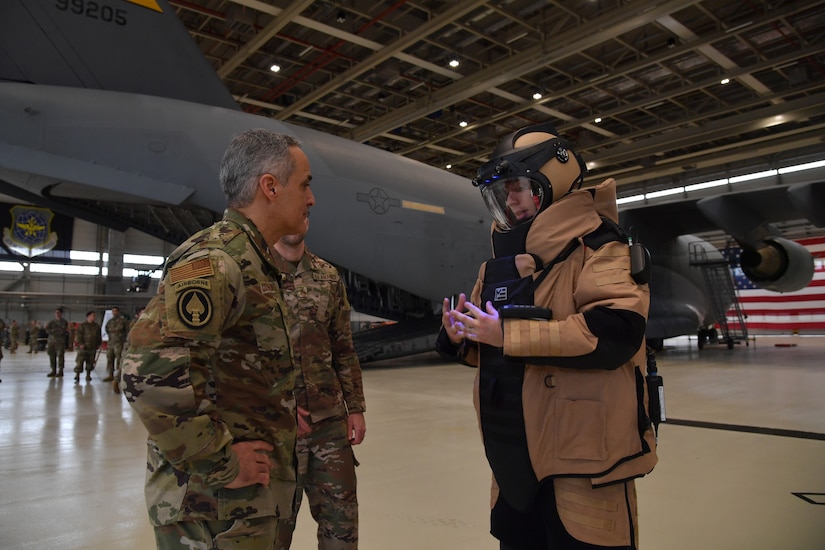April 2, 2020 | BY Jim Garamone , DOD News
The first priority for senior Pentagon leaders in the
COVID-19 pandemic is taking care of service members and Defense Department
civilians and their families, a top Pentagon advisor said.
"This is not the first challenge we have faced, and
this is not the first war that we have fought — and this is a fight,"
Senior Enlisted Advisor to the Chairman Ramon "CZ" Colón-López told
Pentagon reporters today. "So, we're asking our people still to continue
to take actions to protect themselves and those around them by employing the
protective measures outlined by the Centers for Disease Control [and
Prevention]."
But he said military life is a bit different from life in
the civilian world. The mission of the military services is to deter enemies
and, if deterrence fails, to fight the nation's wars. This requires training to
ensure readiness. Soldiers preparing for battle may not be able to employ
social distancing. Airmen in a cockpit sit shoulder-to-shoulder. Sailors aboard
a submarine operate in a very small space.
Certain missions must be performed, and service members will
do them, the military's top enlisted service member said, but commanders are
going to have to decide which missions are essential and which can be put off.
"That is up to the chain of command to go ahead and make that risk
assessment," he said.
Colón-López is in constant contact with his service and
combatant command counterparts. He noted that the military has planned for
contagious disease infections and has carried out those plans in training
exercises in the past. "Each combatant command is providing an assessment
on where they see the force and their effectiveness," he said.
The SEAC is also reaching out to the enlisted force to hear
their concerns. He is planning a Facebook Live event soon to hear from them,
and he will bring their concerns to Army Gen. Mark A. Milley, the chairman of
the Joint Chiefs of Staff. "The one thing that I can do from this position
… is just to make sure that [enlisted personnel] know they have a voice, that
they have support," he said.
The role of noncommissioned officers, regardless of the
situation, is to take the pulse of service members, he said. "They're the
ones closest to the people executing the mission in the field,"
Colón-López said. "They're the ones that provide the commanders with the
necessary information to make sure that those troops are well-equipped, taken
care of, and mission-ready."
In the current situation, he said, NCOs must ensure their
personnel are following the CDC guidelines and relay facts to the troops.
Colón-López said he and the service and combatant command
senior enlisted leaders start that chain, and they are being brutally honest
with troops. "We're being very transparent with them, because we don't
have any time to waste," he said, "and our well-armed and
knowledgeable NCOs will be the calm in the eye of the storm on any
formation."









No comments:
Post a Comment